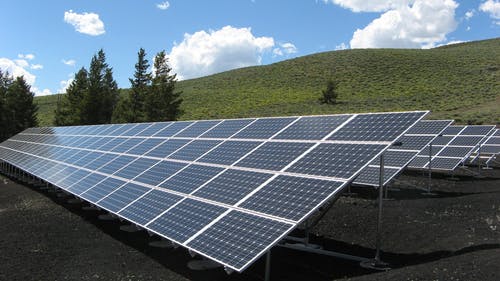Michigan Regulator Explores Rate Design for Distributed Energy Resources

The Michigan Public Service Commission on Feb. 4 established a workgroup to analyze rate design options for distributed energy resources. The commission also adopted a definition for utility pilot projects and criteria for pilot program reviews under the MI Power Grid initiative, the state’s grid modernization effort intended to maximize the benefits of the shift to clean and distributed energy resources.
Launched in October 2019, MI Power Grid was spurred by transformational changes in the power sector, with about half of the state’s coal-fired generation expected to close by 2025, and more retirements planned thereafter. The initiative’s three areas of emphasis are expanding customer engagement, integrating relevant technologies, and optimizing grid performance.
The workgroup follows a Michigan Senate resolution adopted in September, encouraging the commission to study alternative and innovative rate design options, given the rise in customer adoption of evolving technologies, including customer-owned generation, energy storage, and electric vehicles. Increased adoption of these technologies raised concerns about potential for cost shifts as traditional cost-of-service ratemaking models do not fully account for the new energy use.
Focus areas of the workgroup include determining how customer-owned generation and energy storage are changing the way customers use the grid, exploring cost allocation and possible customer charges, and proposing rate design options. The workgroup will take the place of the Distributed Generation Pricing stakeholder workgroup under the Innovative Rate Offerings of the MI Power Grid initiative. The kick-off meeting for the new DER Rate Design workgroup is scheduled for March 9.
The commission defines a pilot as “a limited duration experiment or program to determine the impact of a measure, integrated solution, or new business relationship on one or more outcomes of interest.” Utilities are required to file a comprehensive pilot plan that satisfies the objective criteria including the need for the pilot and goals, design and evaluation plan, costs, timeline, stakeholder engagement plan, and public interest justification.
Commission staff filed status reports on utility pilot projects and MI Power Grid work areas in September and October, respectively. In order to provide sufficient time for stakeholder participation in the initiative in light of the challenges presented by the pandemic, the commission extended the deadline for the second MI Power Grid report to the third quarter of 2021, with a final report due by Oct. 1, 2022.
EnerKnol Pulses like this one are powered by the EnerKnol Platform—the first comprehensive database for real-time energy policy tracking. Sign up for a free trial below for access to key regulatory data and deep industry insights across the energy spectrum.
ACCESS FREE TRIAL